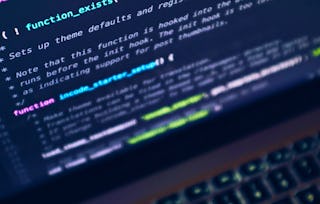By the end of this course, learners will be able to install Python correctly, configure their environment, and execute scripts confidently. They will apply variables, lists, strings, and type conversions; construct input/output programs; and implement arithmetic operations. Learners will also analyze and design loops for prime numbers, Fibonacci sequences, and pattern generation, and build modular programs with functions, parameters, and return values.

Python Basics: Learn, Apply & Build Programs
Seize the savings! Get 40% off 3 months of Coursera Plus and full access to thousands of courses.

Python Basics: Learn, Apply & Build Programs
This course is part of Python Developer: From Basics to Case Studies Specialization

Instructor: EDUCBA
3,237 already enrolled
Included with
35 reviews
What you'll learn
Install Python, configure environments, and run basic scripts.
Apply variables, lists, strings, loops, and arithmetic operations.
Build modular programs with functions and real-world examples.
Skills you'll gain
Tools you'll learn
Details to know

Add to your LinkedIn profile
October 2025
8 assignments
See how employees at top companies are mastering in-demand skills

Build your subject-matter expertise
- Learn new concepts from industry experts
- Gain a foundational understanding of a subject or tool
- Develop job-relevant skills with hands-on projects
- Earn a shareable career certificate

There are 2 modules in this course
This module orients beginners to the Python ecosystem and gets them hands-on quickly. Learners install Python correctly (including PATH), verify the interpreter/IDLE, and run first scripts from the command line. Through practical, bite-sized examples they practice input/output, numeric and string conversions, and core data types. The module closes by firming up essentials—variables, lists, slicing, and basic control flow—so learners can write small, correct programs and debug simple mistakes confidently.
What's included
10 videos4 assignments
This module deepens problem-solving with Python by mastering iteration patterns and modular design. Learners explore for/while, ranges, and nested loops to generate numeric sequences and text patterns, then encapsulate logic using functions with parameters, returns, and defaults. They implement classic algorithms (prime checks, Fibonacci, HCF/GCD–LCM) and craft advanced pattern programs (centered pyramids, Pascal’s triangle, Floyd’s triangle) while practicing input validation and clean program structure.
What's included
9 videos4 assignments
Earn a career certificate
Add this credential to your LinkedIn profile, resume, or CV. Share it on social media and in your performance review.
Explore more from Software Development
 Status: Preview
Status: Preview Status: Free Trial
Status: Free Trial Status: Free Trial
Status: Free TrialDuke University
 Status: Free Trial
Status: Free Trial
Why people choose Coursera for their career

Felipe M.

Jennifer J.

Larry W.

Chaitanya A.
Learner reviews
- 5 stars
71.42%
- 4 stars
14.28%
- 3 stars
11.42%
- 2 stars
0%
- 1 star
2.85%
Showing 3 of 35
Reviewed on Feb 12, 2026
Perfect for Python beginners. The real-world examples like calculators make learning engaging and practical.
Reviewed on Dec 2, 2025
Good for students, job-switchers, and hobby learners.
Reviewed on Dec 16, 2025
The “learn, apply, and build” approach helps learners practice immediately after understanding each topic.

Open new doors with Coursera Plus
Unlimited access to 10,000+ world-class courses, hands-on projects, and job-ready certificate programs - all included in your subscription
Advance your career with an online degree
Earn a degree from world-class universities - 100% online
Join over 3,400 global companies that choose Coursera for Business
Upskill your employees to excel in the digital economy
Frequently asked questions
To access the course materials, assignments and to earn a Certificate, you will need to purchase the Certificate experience when you enroll in a course. You can try a Free Trial instead, or apply for Financial Aid. The course may offer 'Full Course, No Certificate' instead. This option lets you see all course materials, submit required assessments, and get a final grade. This also means that you will not be able to purchase a Certificate experience.
When you enroll in the course, you get access to all of the courses in the Specialization, and you earn a certificate when you complete the work. Your electronic Certificate will be added to your Accomplishments page - from there, you can print your Certificate or add it to your LinkedIn profile.
Yes. In select learning programs, you can apply for financial aid or a scholarship if you can’t afford the enrollment fee. If fin aid or scholarship is available for your learning program selection, you’ll find a link to apply on the description page.
More questions
Financial aid available,

